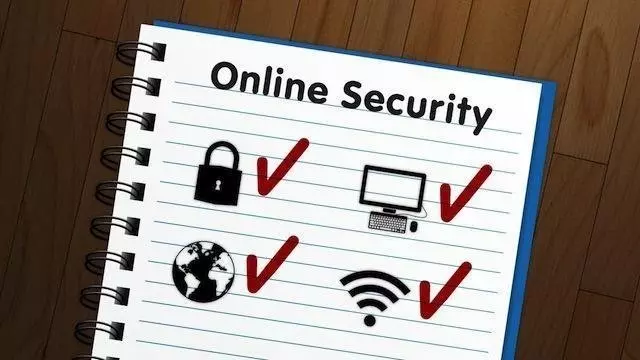From online banking to streaming services, the internet has become a necessary part of life. Despite the convenience, it brings, however, there are still safety concerns associated with browsing online. To ensure that your personal data and browsing activity remain secure, you should consider using a Virtual Private Network (VPN). In this article, we will explore the security features of VPNs, the different types of browsers available for secure surfing, and provide tips on how to use a VPN for safe browsing. So buckle up and get ready to dive into an exploration of VPNs – your ticket to safe online navigation!
Comparing Popular Browsers for Privacy
When it comes to online privacy, choosing the right web browser is essential. With so many options available, it can be difficult to know which one is best for your needs. Popular browsers such as Google Chrome, Mozilla Firefox, Apple Safari, and Microsoft Edge all offer basic privacy features, such as incognito mode and automatic updates. However, each browser offers different levels of security when it comes to protecting your search history and IP address. For example, Chrome is known for its speed and convenience but may not provide the same level of privacy as other browsers. On the other hand, Firefox has a dedicated “Privacy Mode” designed specifically to protect your data from tracking. Additionally, both Safari and Edge have extensive features that block third-party cookies while browsing in private mode. Ultimately, the best browser for you will depend on your individual needs and preferences when it comes to online safety.

Google Chrome
Google Chrome is a popular web browser offering a range of features designed to enhance the user experience. It offers fast page loading speeds, an intuitive interface, and a range of privacy and security features. With Google Chrome, users can opt to browse in an incognito mode which prevents their browsing history from being stored on their device or shared with websites. Additionally, Google Chrome offers an array of security features including a password manager, 2-step authentication, and secure storage for credit card information. Furthermore, Google Chrome also supports private browsing modes such as a guest mode where all activity will be deleted once the browser is closed. All in all, Google Chrome is an excellent choice for those looking for a secure and convenient way to browse the internet while protecting their online activities.
Firefox
Firefox is a popular web browser designed to provide users with an efficient and secure browsing experience. It offers fast page loading speeds, an intuitive user interface, and an array of privacy and security features. Firefox allows users to customize their privacy settings so that they can control how much data websites can access about them. Additionally, it also offers a private browsing mode that prevents the user’s search history from being stored on their device or shared with websites. Furthermore, Firefox also provides additional security measures such as automatic updates for its features, encryption to protect user data from hackers, and a “Do Not Track” feature that prevents advertisers from tracking your online activity. All in all, Firefox is an ideal choice for those looking for a secure and convenient way to browse the internet while protecting their online activities.
Safari
Safari is a popular web browser developed by Apple that provides users with an intuitive and secure browsing experience. It offers fast page-loading speeds, an easy-to-use interface, and numerous privacy features. Safari allows users to customize their security settings so they can control how much data websites can access about them. Additionally, it also offers private browsing mode which prevents websites from tracking the user’s activities or storing any information on their device. Furthermore, Safari also provides additional security measures such as automatic updates for its features, encryption to protect user data from hackers, and a “Do Not Track” feature that prevents advertisers from tracking your online activity. All in all, Safari is an ideal choice for those looking for a secure and convenient way to browse the internet while protecting their online activities.
Tor Browser
Tor Browser is an open-source, secure web browser designed to protect users’ online privacy. It prevents websites and Internet Service Providers (ISPs) from tracking user activities and locations while they are browsing the web. Tor Browser works by routing internet traffic through a network of private nodes, encrypting data as it moves between these nodes. This makes it difficult for anyone monitoring the connection to trace the activity back to the user. Additionally, Tor Browser also strips away any identifying information associated with a request such as IP address, email address, and credit card numbers which prevents anyone from accessing user data. Moreover, Tor Browser also allows users to access blocked or censored content. All in all, with its enhanced security features and ability to provide anonymity online, Tor Browser is an ideal choice for those looking for a secure way to browse the internet without compromising their privacy.
Incognito Mode
Incognito Mode is a feature of modern web browsers that allows users to browse the internet without leaving behind any traces. Incognito mode prevents websites from tracking user activities, and search histories, or storing cookies on their computer. Additionally, it also prevents websites and ISPs from accessing users’ IP addresses or other private data such as email addresses and credit card information. Furthermore, Incognito Mode also shields users from malicious content such as malware and phishing attacks by blocking any suspicious downloads. All in all, Incognito Mode provides an added layer of privacy and security while browsing the internet and is highly recommended for those who want to ensure they are not leaving any digital footprints behind.
Private Browsing Mode
Private Browsing Mode is a feature of modern web browsers that allows users to browse the internet without leaving behind any digital traces. This mode prevents websites from tracking user activities, and search histories, or storing cookies, while also shielding users from malicious content such as malware and phishing attacks. Private Browsing Mode also helps to protect users’ data such as IP address, email address, and credit card information by preventing access by ISPs or websites. Additionally, Private Browsing Mode can be used in conjunction with password managers to ensure maximum security when browsing the web. All in all, Private Browsing Mode offers an added layer of privacy and security for those who wish to remain anonymous online and can be activated on popular browsers such as Google Chrome and Tor Browser.
Security Features of VPNs
VPNs, or Virtual Private Networks, are a powerful tool for online security and privacy. VPNs encrypt the data traffic to protect users’ online activities from being seen by their Internet Service Provider or other third parties. This provides an additional layer of protection as the user’s IP address is also anonymized. Additionally, VPNs offer a variety of security features such as automatic updates and kill switches that can automatically disconnect users from the internet if an unexpected disruption occurs. Furthermore, some VPN services provide private search engines which help protect users’ personal information by eliminating search history and tracking cookies. Finally, VPNs are compatible with mobile devices and allow users to access the internet securely while on the go. All in all, VPNs offer numerous security features which make them an ideal choice for safe browsing online.

Encryption of Internet Traffic
Encryption of internet traffic is an important security measure for anyone looking to keep their data safe while browsing the web. Encrypting your data prevents third parties from intercepting and reading your traffic as it passes through the network. This also helps protect against unauthorized access by malicious actors, as they are unable to decrypt the encrypted data. In addition, encryption can help prevent ISP snooping, which is when your Internet Service Provider (ISP) monitors your online activities without permission. All in all, encryption of internet traffic is a powerful tool for protecting your online privacy and keeping your data secure.
IP Address Hiding/Masked IP Addresses
Internet Protocol (IP) addresses are unique numerical labels assigned to devices connected to a computer network, such as the internet. IP address masking or hiding is a technique used to hide an individual’s true IP address from being visible to others. This is done by using a Virtual Private Network (VPN), which creates a secure tunnel between your device and the VPN server, disguising your IP address and encrypting all traffic sent through it. With an IP address hidden, you can protect yourself from unwanted surveillance and malicious attacks, while also unlocking access to restricted websites and services. Additionally, this type of privacy protection makes it more difficult for marketers to track your online activities and serve relevant advertisements. If you’re looking for increased anonymity on the web, IP address masking is worth considering.
Automatic Updates
Automatic updates are a must-have when it comes to online security and privacy. By ensuring that your devices and browsers are regularly updated, you can protect yourself from the latest security threats, malicious attacks, and virus outbreaks. Automatic updates also allow developers to introduce new features and improvements to existing applications, keeping them running at their best. Additionally, the latest versions of software often come with enhanced privacy features such as the incognito mode in browsers or password managers. Automatic updates help keep your devices up-to-date with the latest security patches while giving you peace of mind knowing that your information is safe. So if you’re serious about keeping your data private, make sure automatic updates are enabled on all your devices and browsers for maximum protection.
How to Use a VPN for Secure Browsing
A Virtual Private Network (VPN) is a great tool for ensuring your online safe browsing. A VPN works by encrypting all the data you send over the internet so that no one can access it without your permission. This way, even if someone were to intercept your data, they wouldn’t be able to see its contents. Additionally, a VPN also hides your IP address and location, making it harder for websites and services to track you.
Using a VPN is easy – all you need is an account with a reliable provider and the right software installed on your device. Once set up, all you have to do is turn on your VPN before browsing the web or using any other online service. You can also adjust settings to select which server you want your connection to go through, giving you more control over where your traffic appears to originate from.
By using a VPN for secure browsing, you can protect yourself from hackers and other cybercriminals who might try to intercept sensitive information such as passwords or credit card numbers. It’s also great for protecting your data from being tracked by websites or advertisers. With a VPN in place, you can rest assured knowing that your online activities are safe and secure!
Using a VPN is the best way to ensure that your online security and privacy are protected. Not only is it easy to set up, but it also gives you peace of mind knowing that your data is safe and secure. So what are you waiting for? Get a VPN today, and start enjoying the benefits of secure browsing! Plus, stay tuned for our next section on how to choose the right service provider for you.
Choosing the Right Service Provider
Choosing the right service provider is essential for ensuring your online security and privacy. There are many VPN providers out there, but not all of them offer the same level of protection. To make sure you’re getting the best possible service, it’s important to do some research before signing up. Look for a provider that offers strong encryption technology, as well as additional features such as automatic updates, private search engines, and password managers. Additionally, be sure to check what devices the provider supports – this will ensure you can use their services on all your devices.
Finally, read reviews from other customers to see what their experience has been like with the service. This will give you a better idea of how reliable and secure the provider is. With these tips in mind, you should have no problem finding a great VPN provider that meets your needs!
Setting Up and Connecting to the Network
Setting up and connecting to a VPN network is an important part of keeping your online activities safe and secure. It’s relatively simple to do, but there are a few steps you need to take. First, you’ll need to purchase a subscription from a reliable service provider. Once that’s done, download the software onto your device and install it. After that, use the login credentials provided by the provider to log in and connect to their network. Finally, adjust the settings on your device so that all internet traffic is routed through the VPN server before going out onto the web. With these simple steps, you’ll be able to stay safe while browsing online!
Conclusion
In conclusion, using a Virtual Private Network (VPN) can be an effective way to protect your online activities, provided you choose the right one. A good VPN should offer top-notch encryption protocols, not collect and use user data, provide fast connection speeds and reliable streaming services, and protect against malicious actors. When researching different options, take into account the various security features offered and read reviews from other users to make sure you are getting the best value for your money. Ultimately, if used correctly, a VPN can help keep your data safe and secure while browsing the internet.



